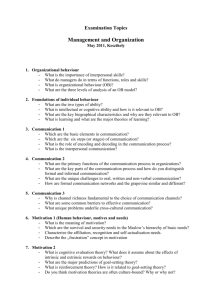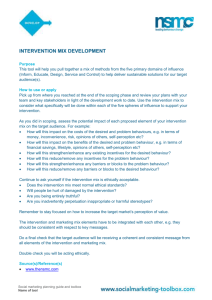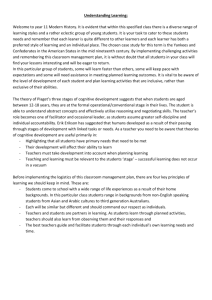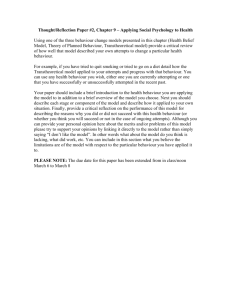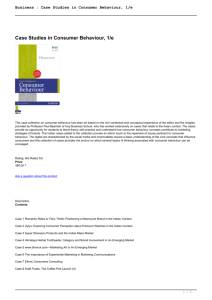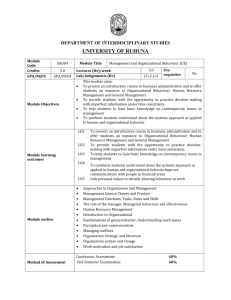Marketing and Consumer Behaviour (a pdf of the PPP from
advertisement
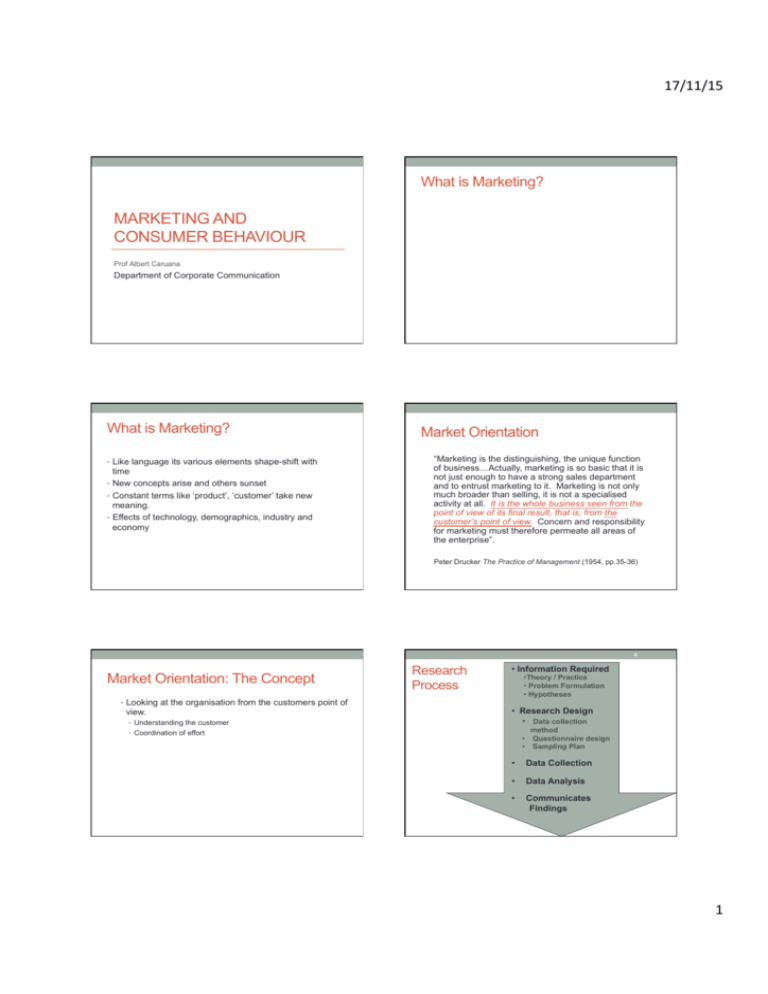
17/11/15 What is Marketing? MARKETING AND CONSUMER BEHAVIOUR Prof Albert Caruana Department of Corporate Communication What is Marketing? • Like language its various elements shape-shift with time • New concepts arise and others sunset • Constant terms like ‘product’, ‘customer’ take new meaning. • Effects of technology, demographics, industry and economy Market Orientation “Marketing is the distinguishing, the unique function of business…Actually, marketing is so basic that it is not just enough to have a strong sales department and to entrust marketing to it. Marketing is not only much broader than selling, it is not a specialised activity at all. It is the whole business seen from the point of view of its final result, that is, from the customer’s point of view. Concern and responsibility for marketing must therefore permeate all areas of the enterprise”. Peter Drucker The Practice of Management (1954, pp.35-36) 6 Market Orientation: The Concept • Looking at the organisation from the customers point of view. • Understanding the customer Research Process • Information Required • Theory / Practice • Problem Formulation • Hypotheses • Research Design • Data collection method • Questionnaire design • Sampling Plan • Coordination of effort • Data Collection • Data Analysis • Communicates Findings 1 17/11/15 Research Design: Relationship Among Research Designs Understanding the Customer • Marketing Research Exploratory 1 • Consumer Behaviour Descriptive 2 • Organisational Buying Behaviour Conceptualisation Causal 3 9 CB is a Process CB/INT/CCT5580/2012-2013 10 Extra- and Intra-Personal Variables • Extra-personal variables • Culture • Sub-Culture • Social Class • Family • • • • CB is an entire process It can only be observed from “the outside” Much of what goes on takes place “within” the individuals Marketers can only observe consumers’ actions when they are exposed to different stimuli. Stages in the Buying Process: Buyphases • Problem recognition • Intra-Personal variables • Learning • Motivation • Personality • Perception • Attitudes Distinctive Features of B2B markets 1. Relationships between Buyer-Supplier – two systems 2. Interaction processes 3. Network structure of interdependence • General need description • Product specification • Supplier search • Proposal solicitation • Supplier selection • Order-routine specification • Performance review Firms depend on the network and shape networks as relationships are developed 2

